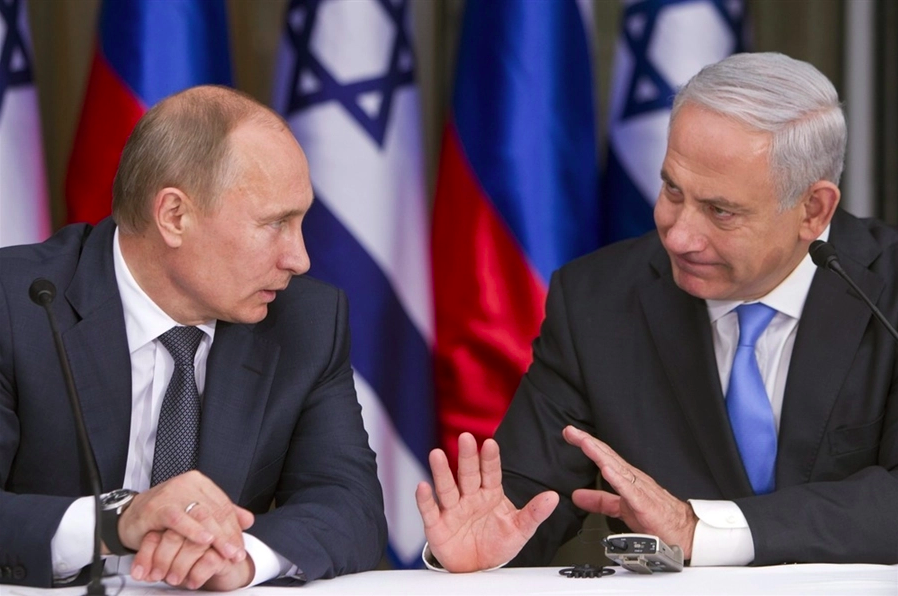Analysis
Putin made a deal with two devils
Russia can make a pact with Erdogan, it can contain Assad and come to terms with the Iranians and Hezbollah—but so far, it has always had to give in to Israeli ambitions.

The Syrian drama, full of massacres, betrayals and deals with the devil, is just as convoluted as the plot of Game of Thrones, and the only certainty—much like in the Seven Kingdoms—is the state of poverty and degradation of the civilian population. One of these Seven Kingdoms would have to be the Greater Israel imagined by Prime Minister Benjamin Netanyahu, whose ambitions have lost all sense of proportion as Tel Aviv fights its war against Iran in Syria—also as a proxy for the United States, just as the Turkish, the Saudis and the Qataris who are supporting Al-Qaeda and various jihadists have been doing for some time now.
In this battle, according to the general staff of the Israeli army, more than 200 air and missile raids have been launched by Israel over the past year and a half. One of them led to the downing of a Russian recon plane with 14 people on board Monday night.
While Putin has been holding back his anger, Moscow has accused Israel of having provoked the incident with its raids that caused the Syrian anti-aircraft defenses—which, one may note, were provided by the Kremlin itself—to mistakenly hit the Ilyushin in the skies above Latakia, while it was landing near a Russian base.
The Russian promises of retaliation are half-hearted. They might have thought they had managed to moderate Israel’s expansionist aims in the Syrian war, after Prime Minister Netanyahu was received at the Kremlin several times, and was also a guest at the latest military parade in the Red Square on the anniversary of the final victory in World War II.
Israel is home to more than a million citizens of Russian origin, and Tel Aviv has gladly taken up the role of a playground for the financial operations of the oligarchs close to Putin, who have been hit by US and European sanctions. In return, Russia is fighting against the anti-Israeli Boycott, Divestment and Sanctions (BDS) campaign.
For the Kremlin leader, the shooting down of a Russian plane—like the Sukhoi fighter jet shot down by the Turkish in 2015—is something like a stab in the back. It is also the case, however, that French warships played a role in the events (without firing a shot, according to the French), now a constant presence off the Syrian coast.
One thing is certain: Israel—which has itself used jihadists when convenient against Assad, in the Golan Heights it has occupied since 1967—is not backing down from its goal is to dislodge the Iranian bases in Syria and to stop the flow of supplies going to the Hezbollah Shiite militias in Lebanon.
This is Israel’s war, waged with the full consent of the United States, whose military presence in northern Syria is the other thorn in Putin’s side, preventing him from setting himself up as the undisputed power in the region. Russia can make a pact with Erdogan, as it did in the last summit between Erdogan and Putin in Sochi; it can contain Assad and come to terms with the Iranians and Hezbollah—but so far, it has always had to give in to Israeli ambitions.
Putin, unlike the Americans, is talking to all the leaders in the region, but these dialogues don’t always result in iron-clad agreements.
In these years of Syrian war, Putin knows he has made a sort of deal with the devil with Netanyahu: Israel accepts the fact that Assad will stay in power, but at the same time Russia allows Israel to constantly keep the Iranians on the back foot, even if they have also fought alongside the Shiite militias to bolster Assad’s regime. The two prongs of this contradiction are coming to a head: up to what point can Moscow tolerate the current situation, which is that of a de facto proxy war waged on behalf of the United States?
The downing of the Ilyushin has for the most part overshadowed another deal with the devil—the one between Putin and Erdogan to abandon the plan for the Idlib offensive. At Sochi, on the Black Sea, the two leaders agreed to avoid massive military action, but also came to an agreement to eliminate Al-Qaeda while ensuring the safety of the pro-Turkish militias deployed south of Idlib, which would have been the first victims of the Syrians and Russians. Erdogan wants to eliminate the Kurdish-Syrian forces of the YPG and YPD, the very same who have fought to eradicate ISIS.
The two former imperial powers—the Russian and Ottoman—are in agreement. The third, the Persian, is giving its blessing as well. But what is the fourth—the American—doing? It is simply letting Israel bomb, without asking permission from anyone. And what if Russia takes revenge? Most likely, it won’t; however, after considering withdrawing from Syria altogether, the Trump administration might end up even more involved in the Middle East than its sulfurous leader could have ever imagined.
Originally published at https://ilmanifesto.it/il-cremlino-e-venuto-a-patti-con-due-diavoli/ on 2018-09-19
